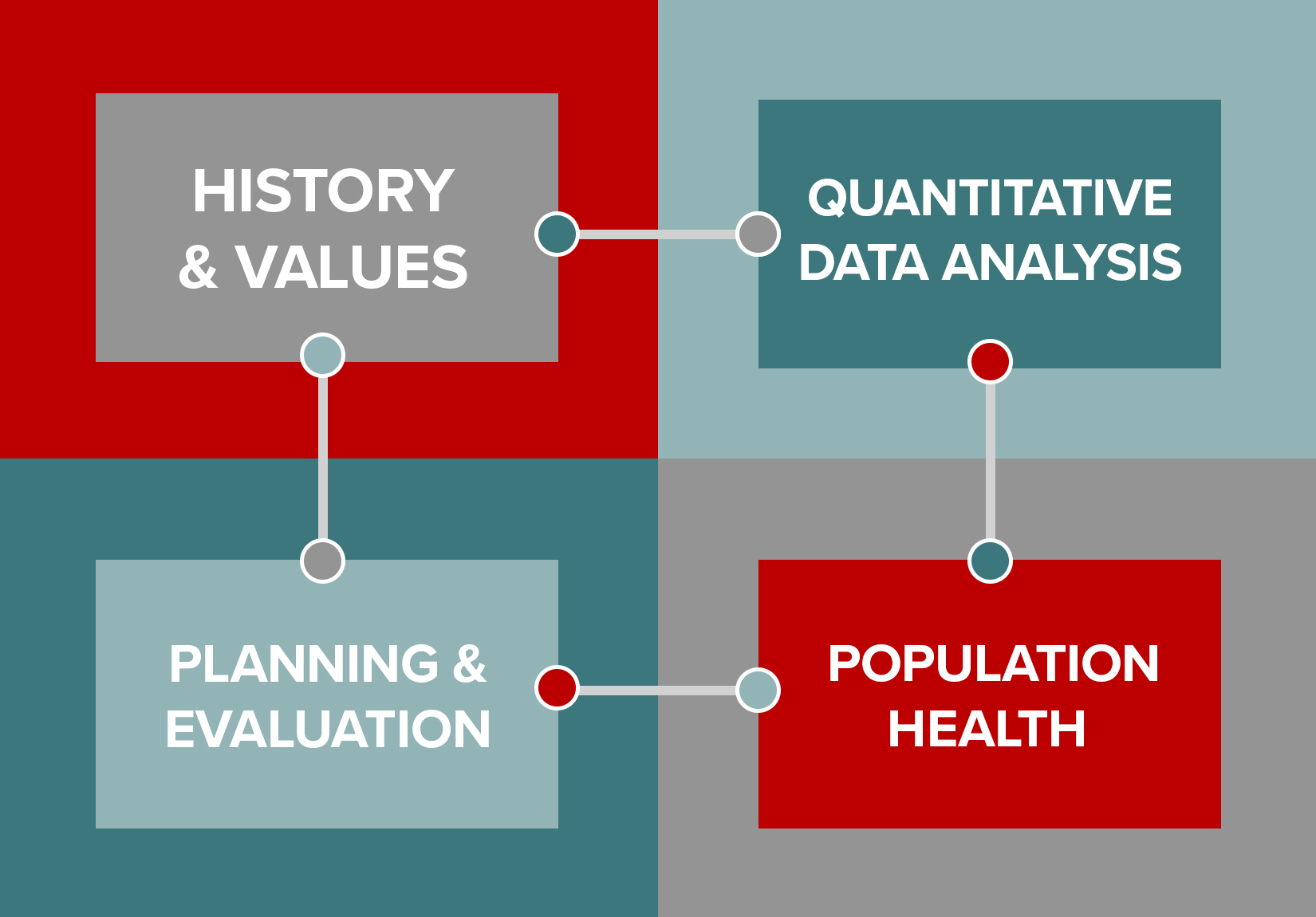College launches foundational curriculum for MPH students
New courses focus on interdisciplinary teaching, learning
By Denise Blough

Four new courses will offer new Master of Public Health students a broad base of public health knowledge early in the program to better prepare them for success.
Previously, MPH students had to take at least one class from each of the college’s five divisions at any point before graduating. The new integrated foundational curriculum —delivered 100% online — streamlines core ideas in three fewer credit hours. Students will take the courses in the first year, ensuring they have a grasp of the fundamentals of public health early on. The interdisciplinary classes are each taught by at least two instructors.
“Students were sometimes having difficulty making connections — maybe they were in the last semester of their MPH and just being introduced to concepts of environmental health,” added Rebecca Andridge, an associate professor of biostatistics who helped design the curriculum. “And that’s not ideal, because all the components of public health should be integrated and will be integrated when students become public health practitioners.”
Front-loading the courses at the beginning of the program also better prepares MPH students for their Integrative Learning Experience, which involves applied research and practice-based projects, Andridge said.
“Although there was some level of integration of content between the five courses that previously composed the core curriculum, the four new courses are designed with much more deliberate sequencing of topics,” said Michael Bisesi, vice dean for academic affairs and academic administration and interim chair of environmental health sciences.
The MPH Integrated Foundational Curriculum
- PUBHLTH 6001: Methods in Quantitative Data Analysis covers foundations in epidemiology and biostatistics.
- PUBHTLTH 6002: History, Values and Essential Services of the U.S. Public Health System explores ethics, history, structural health inequities and environmental health — featuring a module taught by Dean Amy Fairchild — and provides an overview of how public health and health care works at scales large and small.
- PUBHLTH 6003: Methods in Public Health Planning and Evaluation introduces important competencies in health services management and policy.
- PUBHLTH 6004: Essentials of Population Health discusses how policies and systems contribute to health outcomes of different populations, highlighting approaches in health services management, health behavior and health promotion, and environmental health sciences.
PUBHLTH 6002 and 6004 also involve “integrated labs,” which allow students to apply their knowledge and interact with guest speakers working in public health.
The new curriculum ensures that — regardless of specialization — each MPH student gains a universal understanding of public health concepts and how they apply to preventing and mitigating adverse health impacts on communities, Bisesi said. An added benefit is that each cohort of MPH students will move through the curriculum together, Andridge said.
“The integrated curriculum allows for much more interdisciplinary interaction among the students, and that’s a huge benefit because public health is, by definition, interdisciplinary,” Andridge said. “Long-term, the hope is that students understand the connections among the different disciplines within public health in a more meaningful way so that they’re better prepared to enter the workforce.”